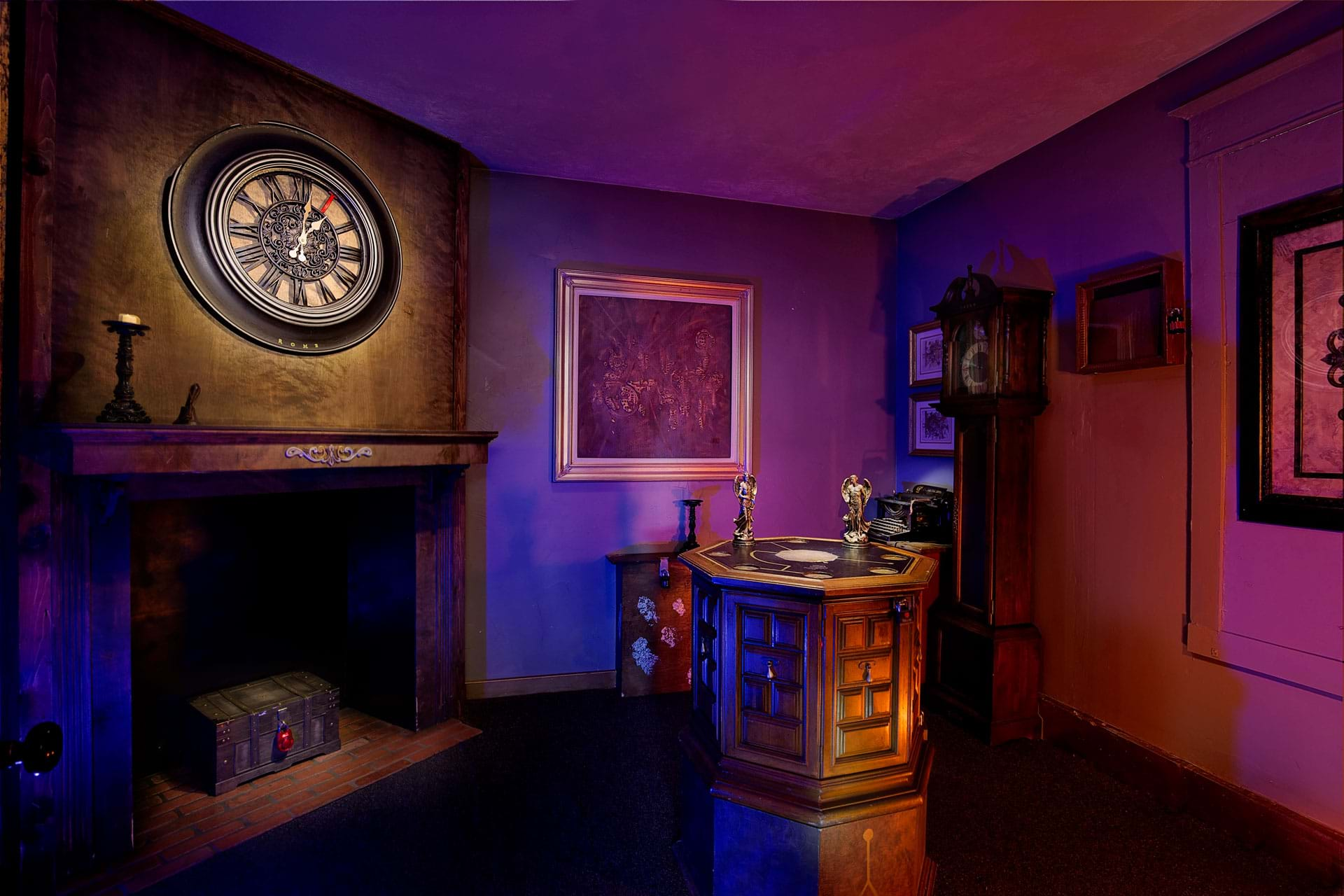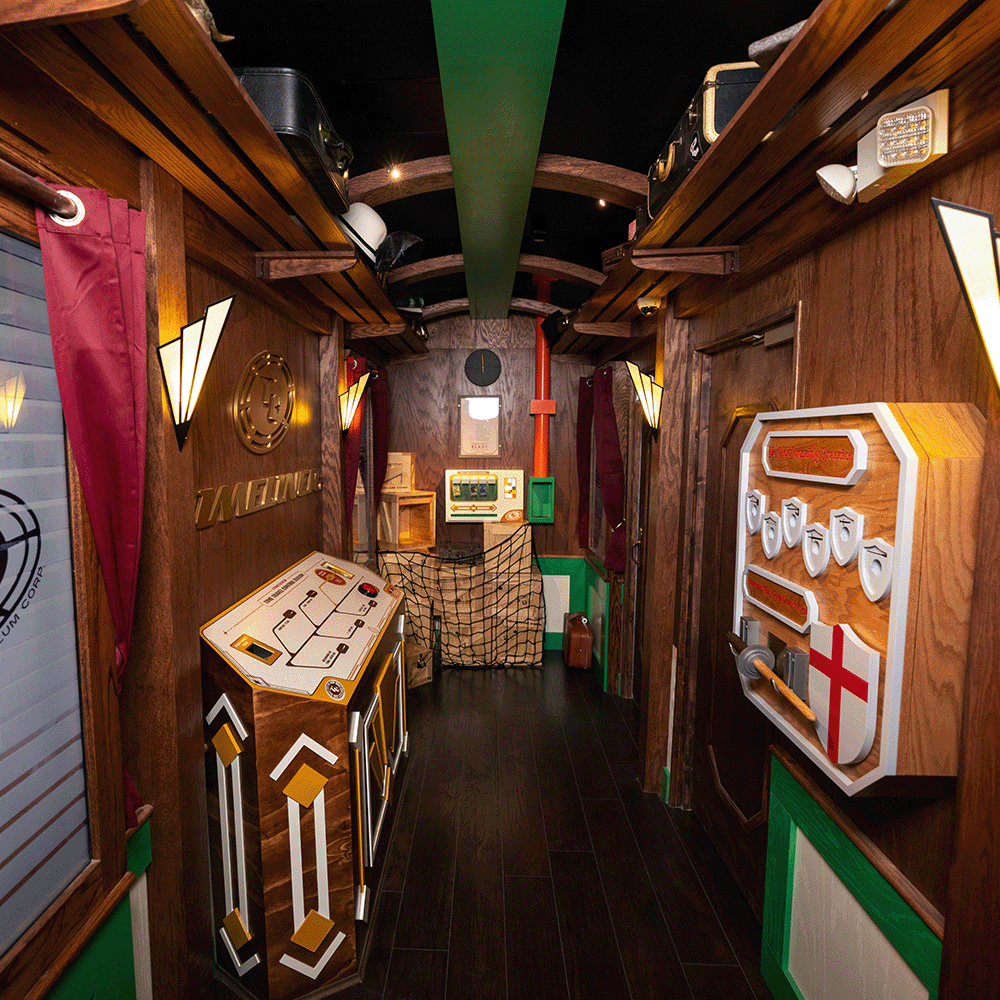Minneapolis Escape Room-- Amazing Problem Obstacles for All Ages
Minneapolis Escape Room-- Amazing Problem Obstacles for All Ages
Blog Article
Team Strategies: How to Collaborate Successfully in an Escape Area
Browsing the intricacies of a getaway area requires greater than simple interest; it requires a well-coordinated approach based in clear interaction, critical role tasks, and skilled time administration. Teams must proactively listen to each participant's understandings, designate duties that straighten with private strengths, and maintain regular check-ins to make sure emphasis and protect against redundancy. By promoting an environment that values communication and adaptability, groups can significantly enhance their effectiveness and success prices. The subtleties of these methods can transform the experience, yet exactly how exactly can they be applied to maximize the possibility for success?
Establish Clear Communication

To help with clear interaction, it is important to assign a central factor of call for info circulation. Quick, focused updates from each team member can maintain the team educated without overwhelming them with information.

Designate Duties Tactically
While clear communication establishes the structure for reliable teamwork, appointing functions tactically guarantees that each group member's strengths are made use of successfully. In an escape space scenario, the time-sensitive and complicated nature of obstacles requires an efficient method to task delegation. By identifying and leveraging private competencies, teams can maximize their problem-solving abilities and boost overall efficiency.
A person with a keen eye for detail might excel in discovering concealed items, while a sensible thinker can be much better matched to solving puzzles. This role frequently needs strong organizational and interpersonal skills.
2nd, guarantee that roles are flexible and adaptable. As brand-new obstacles arise, the group needs to be able to pivot, reallocating tasks as needed. This flexibility aids preserve momentum and avoids bottlenecks that can happen because of stiff role assignments.
Ultimately, a strategic strategy to duty task not only maximizes the strengths of each group member yet also cultivates a cohesive setting, driving the group in the direction of an effective getaway.
Use Diverse Abilities
Identifying and using the diverse abilities within your team can significantly raise your efficiency in a getaway area. Each staff member brings unique staminas to the table, and efficiently leveraging these capacities can speed up analytic and enhance general performance. For instance, an employee with solid analytical skills could excel at understanding complex codes or patterns, while one more with eager observational capabilities might quickly identify surprise clues that others could overlook.
Effective why not try this out interaction is crucial to making use of these diverse skills. Encourage team members to articulate their understandings and concepts immediately, guaranteeing that all possible options are taken into consideration. This inclusive method promotes a vibrant environment where creativity and vital reasoning can grow. In addition, appointing jobs that straighten with each participant's staminas can protect against traffic jams and make certain that progress is continual.
Furthermore, diversity in abilities usually translates to diversity in assuming designs, which is indispensable in an escape area setup. While some challenges might require rational reasoning and precision, others may benefit from imaginative and association of ideas. By acknowledging and leveraging this variety, groups can deal with a broader variety of difficulties better, consequently enhancing their chances of an effective getaway.
Manage Time Effectively

First, assign initial minutes for a fast study of the space. Determine visible puzzles and separate jobs based upon group members' strengths, ensuring that no one is still. Set internal time checkpoints to review progression regularly; as an example, goal to have half go right here the problems addressed by the mid-point of the game. This technique can help maintain the team concentrated and protect against time from sliding away unnoticed.
In addition, stay clear of one-track mind. If a puzzle is taking as well long, rotate staff member or relocate on to one more obstacle, returning later with fresh perspectives. Communication is critical-- maintain everyone upgraded on resolved problems and remaining jobs to avoid repetitive efforts.
Finally, utilize any kind of hints or hints moderately but purposefully - best escape room. Knowing when to click request for help can save beneficial time. By adhering to these time monitoring principles, teams can significantly enhance their opportunities of a successful and satisfying retreat room experience
Debrief and Show
Representation is a vital facet of team advancement and renovation in the context of getaway areas. Once the difficulty is finished, whether efficiently or otherwise, it is important for the group to take part in a structured debriefing session. This process enables staff member to assess their performance, identify staminas, and determine locations for improvement.
Begin the debrief by discussing what went well. Highlight certain circumstances of reliable interaction, analytic, and collaboration. Recognizing these positive habits enhances them and urges their rep in future obstacles.
Review minutes of complication, miscommunication, or inefficient techniques. Encourage an open and constructive discussion where group participants can share their point of views without concern of criticism.
Conclusion
To conclude, effective cooperation in a getaway room is predicated upon clear communication, critical function jobs, the reliable utilization of diverse abilities, and competent time administration. Normal check-ins and structured debriefings are vital for preserving emphasis and fostering continuous improvement. By developing a natural and adaptive team setting, the likelihood of efficiently fixing puzzles and attaining the objective of running away the space is considerably boosted. This technique not only makes sure success but additionally promotes cumulative growth and understanding.
Report this page